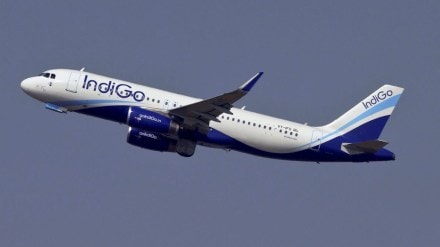IndiGo, India’s largest airline by fleet size, has contributed significantly to Airbus’ best-ever year in aircraft deliveries. In 2024, IndiGo received 58 new aircraft, making it the single largest customer for Airbus. The airline’s deliveries accounted for 7.6 per cent of the total 766 aircraft delivered by Airbus, marking a historic achievement in the global aviation sector.
IndiGo’s Growth Continues with Increased Deliveries
IndiGo’s 58 deliveries in 2024 represent the highest number of aircraft it has received in a single year. The airline has consistently ramped up its fleet over the years, with 41 deliveries in 2023, 49 in 2022, 42 in 2021, and 44 in the peak-pandemic year of 2020. This marks a significant upward trajectory, particularly as the airline had placed a massive order for 500 aircraft with Airbus in 2023. This order remains one of the largest in aviation history.
Airbus’ Struggles and Success
Despite strong demand from customers like IndiGo, Airbus missed its target of 770 deliveries in 2024 by just four aircraft, delivering 766 planes. The company continues to face supply chain challenges, but its record delivery figures still signify a remarkable achievement. The backlog of orders remains substantial for both IndiGo and Air India, with the latter also adding to its fleet.
As of December 2024, IndiGo had 930 aircraft still to be delivered, including 241 A320neo, 659 A321neo, and 30 A350-900s. Air India, including its subsidiary Vistara, has a total of 344 undelivered aircraft, comprising 210 A321neo, 90 A320neo, 19 A350-900, and 25 A350-1000. This backlog reflects the ongoing demand for Airbus aircraft, especially among Indian airlines, as they expand their fleets to meet the growing demand for air travel.
Why IndiGo is Expanding Its Fleet?
IndiGo’s rapid fleet expansion in 2024 can be attributed to a combination of factors. The airline faced challenges at the beginning of the year due to the grounding of between 80 and 90 Pratt & Whitney-powered A320neo aircraft. To mitigate this, IndiGo resorted to wet-leases, lease extensions, and new aircraft deliveries. Despite these challenges, the airline’s delivery plans have been strategically set months in advance, highlighting IndiGo’s proactive approach to fleet expansion.
The Shift to CFM-Powered Engines
One key reason behind IndiGo’s aggressive fleet growth is the airline’s desire to shift away from Pratt & Whitney-powered aircraft in favor of CFM-powered engines. As some Pratt & Whitney-powered planes return to service, IndiGo is focusing on redelivering aircraft and increasing its CFM-powered fleet. This move comes after years of challenges with Pratt & Whitney engines, which have faced reliability issues since their induction in 2016. The shift is also seen as a competitive strategy to strengthen IndiGo’s position in the Indian aviation market.
The Struggle for Smaller Aircraft in India
While Airbus’ smaller offerings, such as the A220, and Embraer’s E2 series have found success in many markets, they have struggled to make significant inroads in India. One possible reason for this is that these aircraft are exclusively powered by Pratt & Whitney’s GTF engines, which have not garnered the same level of trust as CFM engines in the Indian aviation sector. This has reinforced IndiGo’s preference for CFM-powered aircraft as it continues to grow its fleet.
Competitive Landscape in Indian Aviation
IndiGo’s aggressive fleet expansion is part of a broader strategy to maintain its dominance in the competitive Indian aviation market. With Air India also increasing its fleet size through both new orders and mergers, the rivalry between the two airlines is set to intensify in the coming years. IndiGo’s forward planning, coupled with its efforts to secure reliable aircraft engines, positions it well to compete with Air India’s expanding operations.
As IndiGo continues to grow its fleet and expand its operations, its role in shaping the future of Indian aviation cannot be overstated. The airline’s strategic decisions, such as its focus on CFM-powered aircraft and its massive Airbus orders, reflect a forward-looking approach aimed at tackling the challenges of today and preparing for the demands of tomorrow. With a backlog of aircraft deliveries and a clear vision for the future, IndiGo is set to remain a key player in the global aviation market for years to come.
